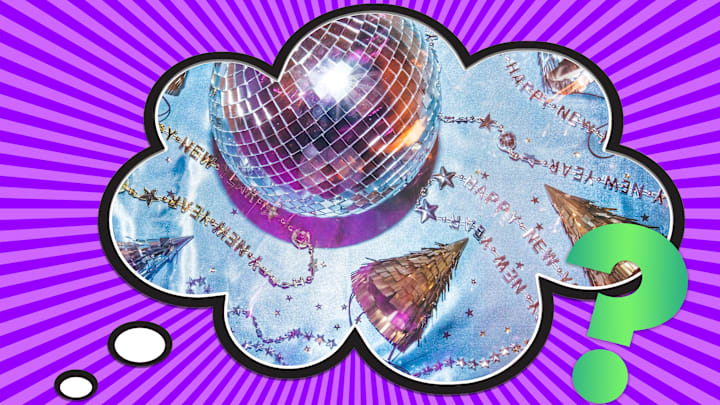These days, you can say you’re “ringing in” the New Year with plenty of things that don’t ring: a toast, a kiss, an ambitious New Year’s resolution, a Harry Potter marathon, an entire sheet cake to yourself, and so forth. When the phrase originated, however, it involved something that actually rang: bells.
As Mic reports, communities used to bid adieu to the old year and welcome the new one by ringing bells, often in churches. The tradition may have grown out of other occasions where bells marked an end—“passing bells,” the bells that tolled when someone died—or celebrated a beginning (like wedding bells). Alfred, Lord Tennyson referenced the custom in part of “In Memoriam A.H.H.,” a lengthy elegy written after the sudden death of his friend (and his sister’s fiancé) Arthur Henry Hallam in 1833. Here’s the second stanza from the section known as “Ring out, wild bells”:
“Ring out the old, ring in the new,
Ring, happy bells, across the snow:
The year is going, let him go;
Ring out the false, ring in the true.”
Decades before hordes of revelers started flocking to Times Square to watch the ball drop, which first occurred in 1907, they congregated farther downtown at Wall Street’s Trinity Church. There—now home to the graves of Alexander Hamilton and several relatives—they rang in the New Year with a veritable concert put on by the church’s official bell ringer, James E. Ayliffe. As the New York Herald reported in 1860, “there floated from the high church tower the stirring music of eight bells chiming in changes and making the air redolent with harmony. This was followed by ‘Hail Columbia,’ ‘Yankee Doodle’ and some sweet selections from ‘La Fille du Regiment.’ ”

According to Trinity Church’s archives, the earliest mention of the tradition is from the minutes of an 1801 meeting where parishioners allotted eight pounds “to the Persons who rang the Bells in New Years day.” It might have been going on long before that, considering the church got its first bell back in 1698.
In short, ringing bells was once a central part of the holiday. The fact that it’s faded from memory—and ring in the New Year makes little sense if you don’t know the phrase’s history—may help explain why so many people now say “bring in the New Year” instead.
Discover the Answers to More Big Questions:
A version of this story originally ran in 2021; it has been updated for 2024.
